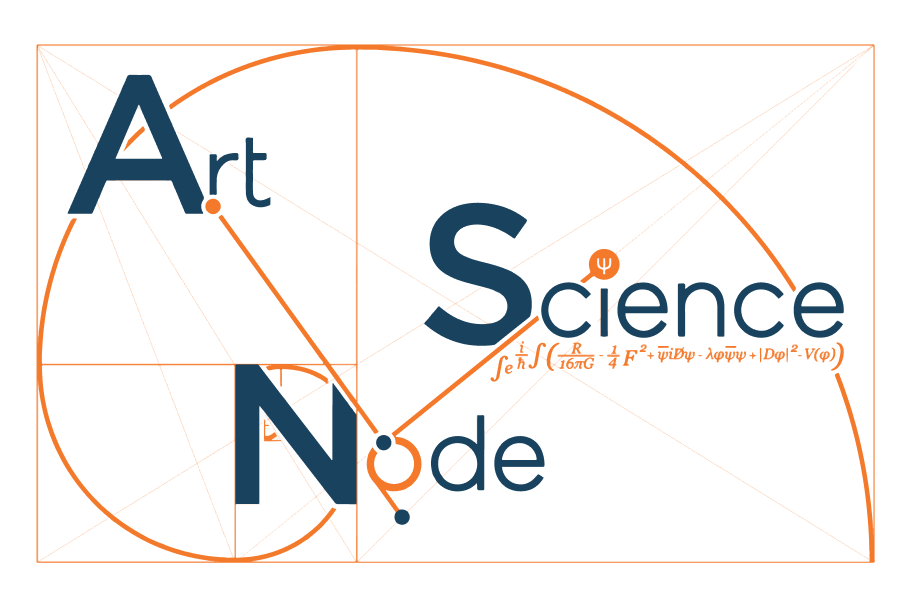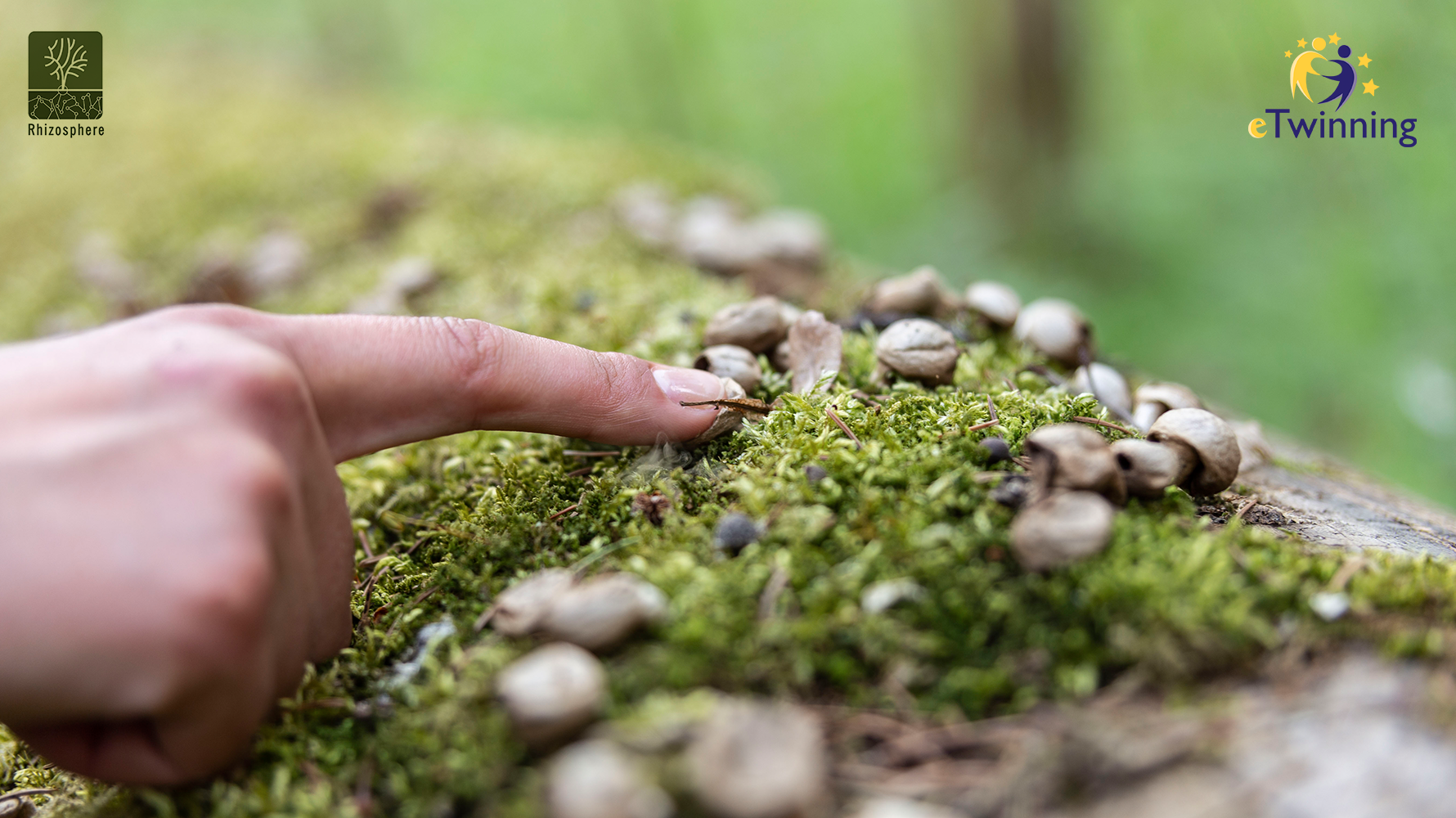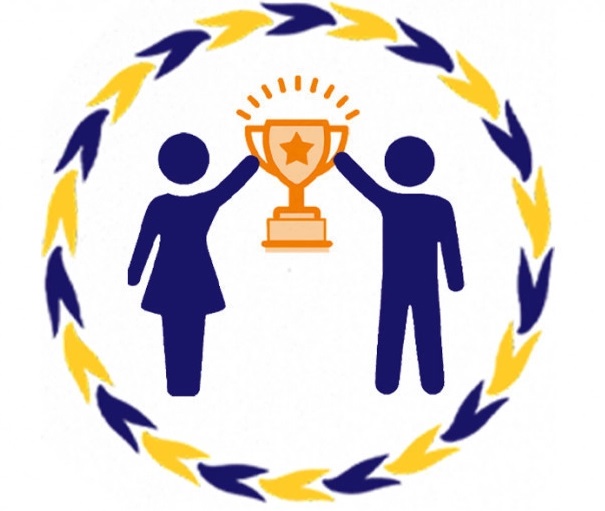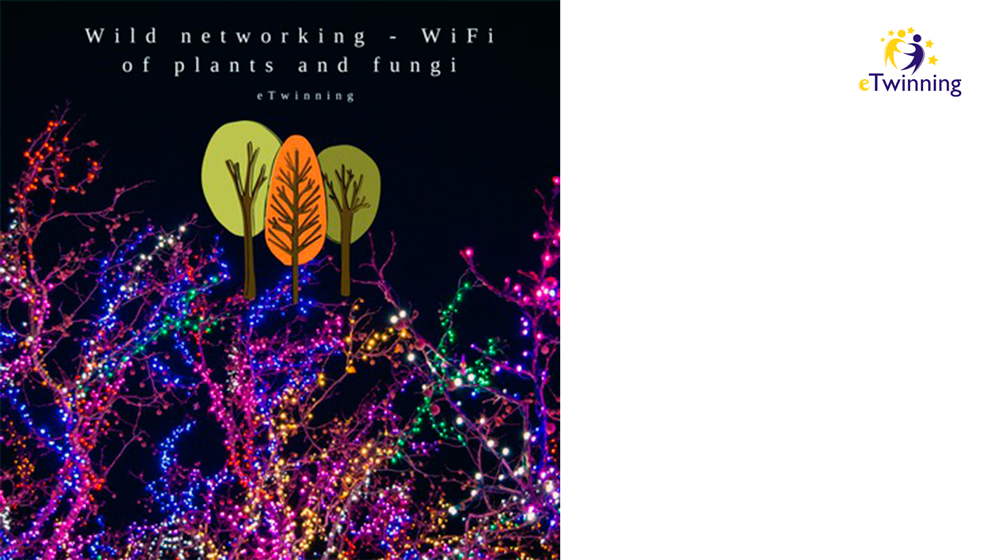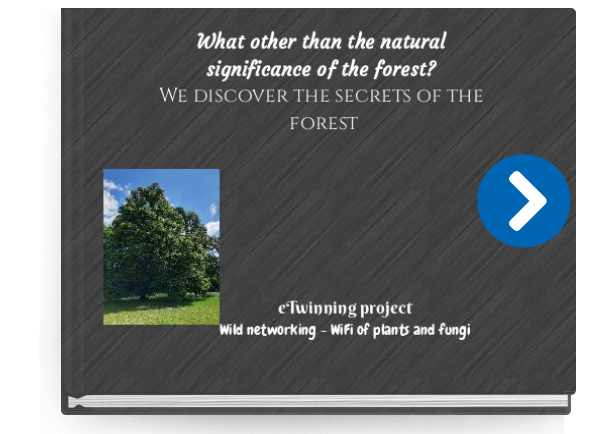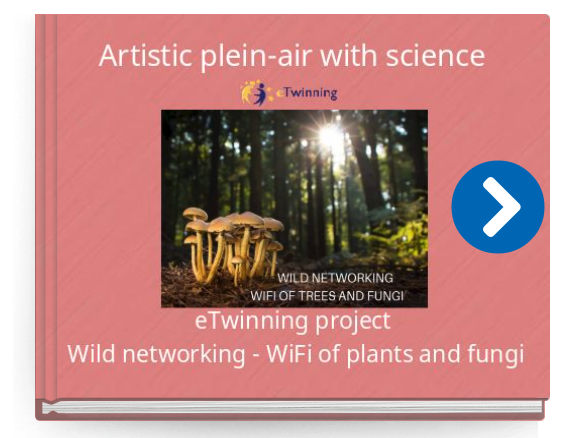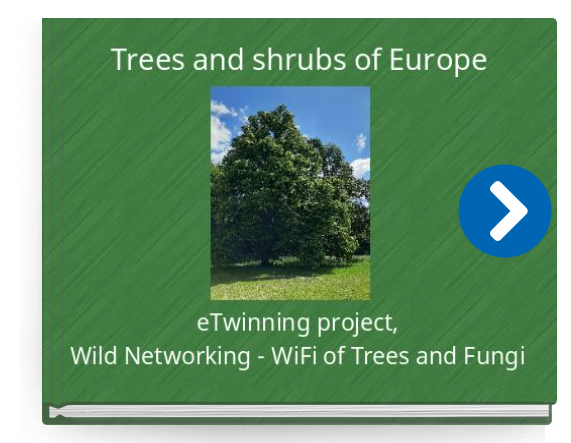E-TWINNING & THE RHIZOSPHERE

The International e-Twiinig Project: Wild Networking – WiFi of Plants and Fungi was a laureate of the prestigious competition for the eTwinning Project of the Year 2022, Polish edition: Congratulation to our eTwinning Team, especially eTwinning ambassador Tomasz Ordza and the international educational “rhizome”, especially pupils and teachers in Poland, Portugal and Turkey for they daily creative activities!!!
In 2020, partners of the Rhizosphere Project took up a new challenge, supporting Wild Networking – WiFi of Plants and Fungi interdisciplinary education project, completed in the frame of EU platform for schools – eTwinning.
A Polish school developing eTwinning projects – Kazimierz Nowak Elementary School in Dąbrówka (PL), with the program initiator – Tomasz Ordza – have already been co-operating with Rhizosphere Team, especially with prof. Marlena Lembicz from the Faculty of Biology of Adam Mickiewicz University (UAM) and Piotr Słomczewski from the Studio for Transdisciplinary Projects and Research at the University of Arts in Poznań (UAP). In 2020 & 2021 the coherent interdisciplinary project bridging plants network and human networks titled Wild Networking – WiFi of Plants and Fungi will be established as e-Twinning program realized by Polish, Portuguese and Turkish children (with e-Twinning partner schools in Dąbrówka, Barreiro and Istanbul).
E-TWINNING AT KAZIMIERZ NOWAK ELEMENTARY SCHOOL IN DĄBRÓWKA
Modern education should be based on solving problem tasks, developing scientific and critical thinking, as well as improving the ability to co-operate in groups. In the era of the digital world, the possibility of co-operation in international teams and projects is also important for the social abilities and up-to-date skills development.
The eTwinning platform is the community for schools in Europe. It promotes international co-operation between schools at different stages of education; exchange of experiences between teachers of various subjects, looking for contacts and inspiration as well as training, workshops, seminars, courses and conferences. The main axis of action in projects implemented through eTwinning platform is the development of skills related to the use of information and communication technologies. eTwinning is co-funded by the Erasmus+, the European program for Education, Training, Youth and Sport.
eTwinning co-operation in the project “Wild Networking – WiFi of Plants and Fungi” that encompasses the Rhizosphere Project is run by Tomasz Ordza from Kazimierz Nowak Elementary School in Dąbrówka, in co-operation with two other educators – Helena Pires from Agrupamento de Escolas de Álvaro Velho in Barreiro (PG) and Seda Göçhan at Türkiye Gazeteciler Cemiyeti Ortaokulu (TU). The program in total has been carried out since 2016.
WILD NETWORKING – WIFI OF PLANTS AND FUNGI (2020-2021)
The project aims to show the natural diversity of trees and fungi, their importance for the environment and practical application by humans. An important element of the project will be to compare the communication of plants and fungi to the Wi-Fi networks. Plants and fungi do not remain silent. The project will be embedded in the STEAM methodology. Students learn about the biodiversity of trees and fungi in different parts of Europe. They get to know the ways of communication between plants and fungi. They will work on creating a virtual herbarium. Their work will be organized in a form of artistic workshops and scientific classes on plants and mushrooms and their networking. The project topics were agreed with three main partners from Turkey, Portugal and Poland.
SEE HOW THE PROJECT DEVELOPS HERE
RESULTS – A SCIENCE-ART STORY
Each student had been given the task to present a network of symbiotic
interactions in nature in the form of a drawing – Science-Art Story. Three types
of classes were prepared for the students: a scientific workshop in the field;
science-art outdoor activities in a school garden, conducted by Piotr Słomczewski –
teacher and artist from the University of Arts in Poznań; and an online meeting
with prof. Marlena Lembicz – biologist from the Department of Biology of Adam
Mickiewicz University in Poznań – via a Google Meet application, with her lecture
entitled “Cooperation in a Network of Plants and Fungi”.
Biological facts presented in the student works were categorized into five groups.
The majority of the works (11) belonged to group Morphological Structure of
Interaction Partners – the group of work presenting the network structure of plants
and fungi. The least numerous was group with only 2 works showed a role
of Humans in Symbiotic Interactions. The majority of works (27) focused on the
development of interactions, their diversity and the mechanisms of communication
between plants and fungi. The students used different metaphors, symbols and
painting techniques as the means of expression to present biological facts.
WORK PROGRESS – ARDUINO WORKSHOP
WORK PROGRESS – E-BOOKS
PAST E-TWINNING PROJECTS AT KAZIMIERZ NOWAK ELEMENTARY SCHOOL IN DĄBRÓWKA
LOCAL AND GLOBAL CHANGE AGENTS (2019-2020)
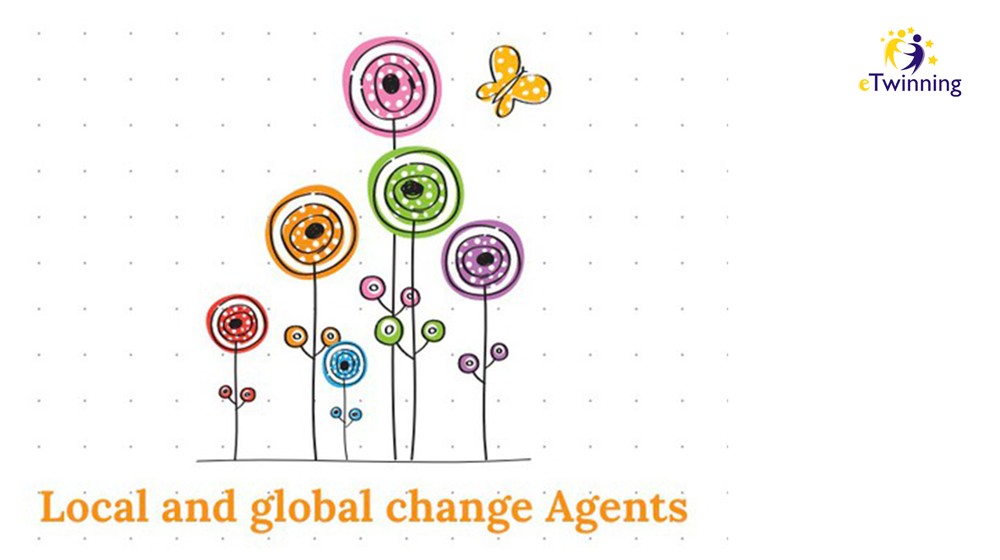 The project aimed to stimulate students to respect nature and to develop attitudes towards work on the Earth’s sustainability. Students investigated the major local and global environmental problems and possible mitigation measures. The intention was to involve the school community in a commitment to apply various ecological measures that we can all apply daily. It is also intended to be involved with Environmental Associations that help to better understand global issues and what is being done at European level to combat climate change.
The project aimed to stimulate students to respect nature and to develop attitudes towards work on the Earth’s sustainability. Students investigated the major local and global environmental problems and possible mitigation measures. The intention was to involve the school community in a commitment to apply various ecological measures that we can all apply daily. It is also intended to be involved with Environmental Associations that help to better understand global issues and what is being done at European level to combat climate change.
THE SECRET LIFE (2019-2020)
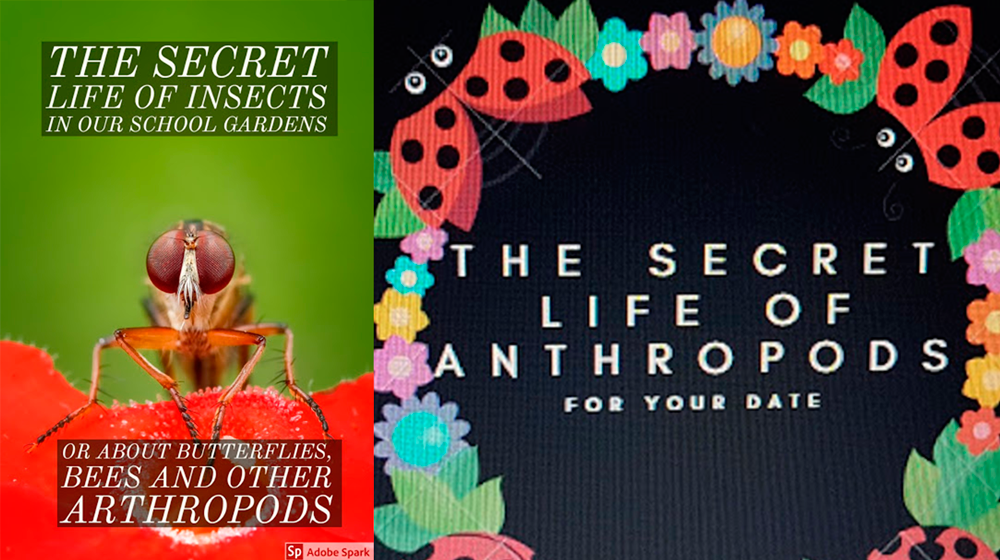 Project aimed to research the natural diversity of arthropods in the school gardens. A detailed focus on the biology and ecology of bees and butterflies was made. Participant school students learnt about the structure and the roles of these insects – their secret life and the role in the community in the case of bees or ants. The project’s main objective was to in turn plant those plant species that bees can feed on. The other aim was to teach students about the importance of preserving the arthropods’ ecosystems for the better of future generations.
Project aimed to research the natural diversity of arthropods in the school gardens. A detailed focus on the biology and ecology of bees and butterflies was made. Participant school students learnt about the structure and the roles of these insects – their secret life and the role in the community in the case of bees or ants. The project’s main objective was to in turn plant those plant species that bees can feed on. The other aim was to teach students about the importance of preserving the arthropods’ ecosystems for the better of future generations.
CHEMICAL CARNIVAL WITH MARIA SKŁODOWSKA-CURIE (2018-2019)
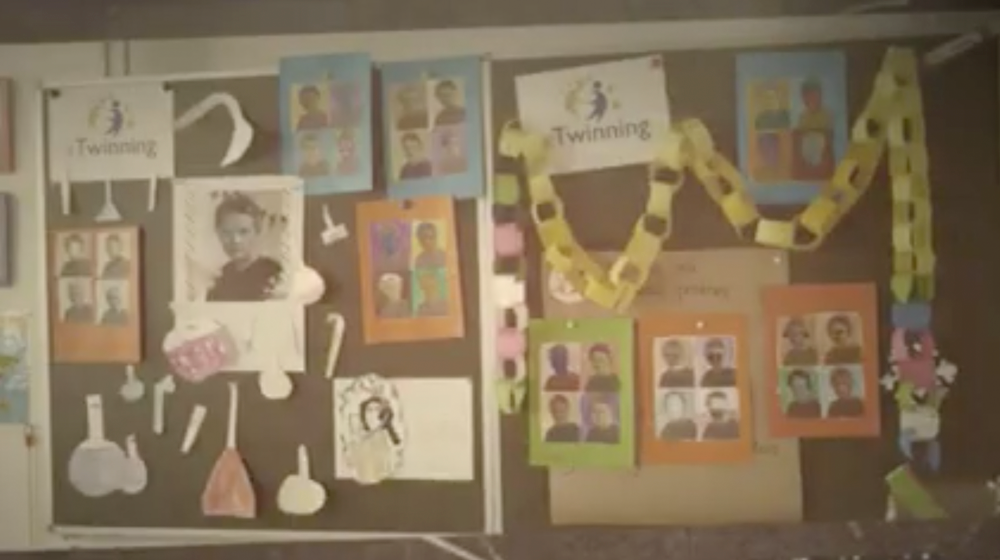 Project aimed at development of the chemical, IT and work skills over a common topic of life and work of Polish Nobelist Maria Skłodowska-Curie.
Project aimed at development of the chemical, IT and work skills over a common topic of life and work of Polish Nobelist Maria Skłodowska-Curie.
Various chemical experiments and chemical coding processes were interestingly combined with working on different IT tools. Project gave students chance to interactively use some of new digital processes.
RENDEZ-VOUS WITH AMPHIBIANS (2017-2018)
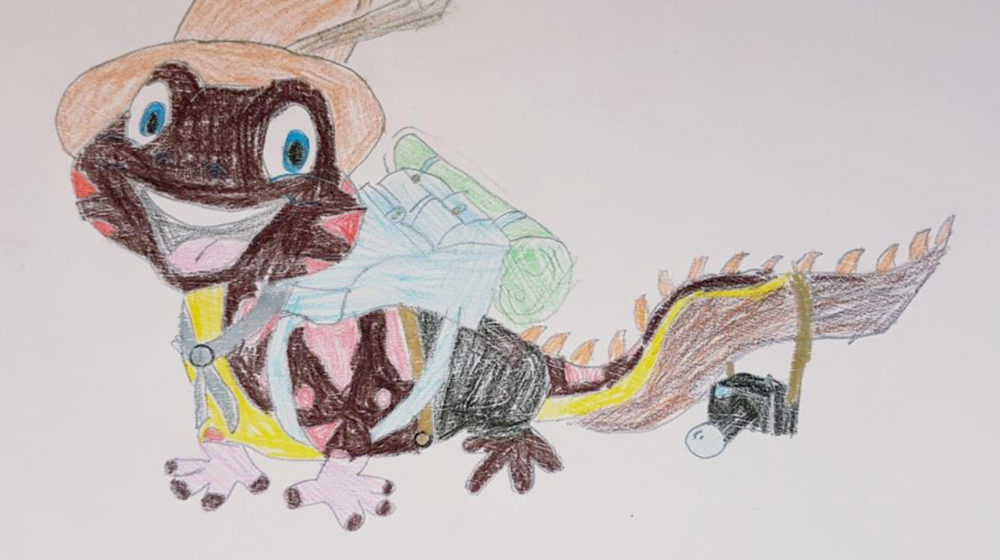 The project aimed at examination of natural amphibian diversity in the neighborhoods of participating schools. Students’ work revolved around its documentation in form of leaflets, posters and/or films dedicated to the amphibians. This in turn gave them the sensitivity & awareness of various species and the knowledge how to protect the amphibians. Students learnt not only the biology and ecology of amphibians, but also the need for their protection, as well as mechanisms of social campaigning for an ecological cause.
The project aimed at examination of natural amphibian diversity in the neighborhoods of participating schools. Students’ work revolved around its documentation in form of leaflets, posters and/or films dedicated to the amphibians. This in turn gave them the sensitivity & awareness of various species and the knowledge how to protect the amphibians. Students learnt not only the biology and ecology of amphibians, but also the need for their protection, as well as mechanisms of social campaigning for an ecological cause.
AROMATIC GARDEN (2017-2018)
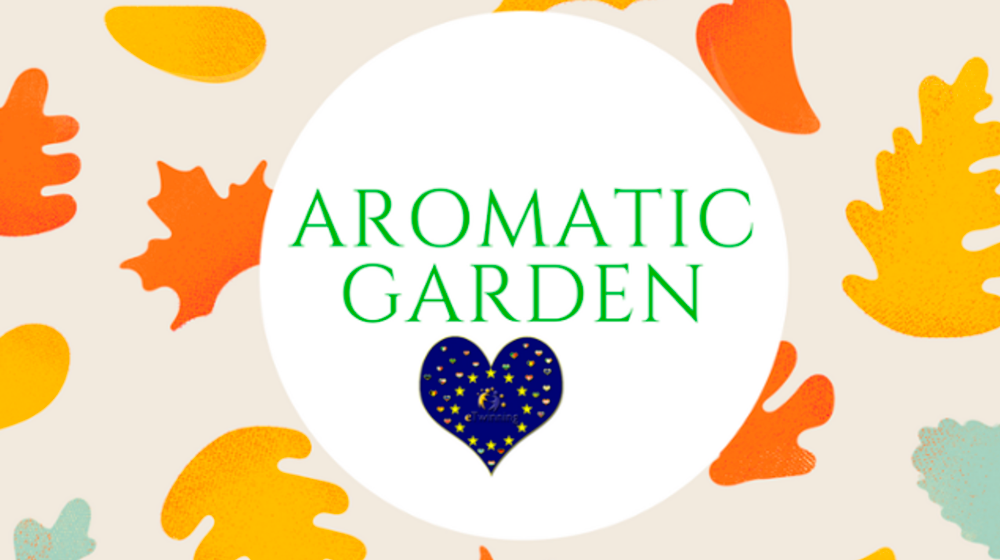 The project was an educational approach that aimed to stimulate students’ love of nature and planting.
The project was an educational approach that aimed to stimulate students’ love of nature and planting.
At first students explored which aromatic plants grow in their hometowns. They planted these aromatic plants in their school garden. Hence, at the end of the project, the program participants “grew” to become more eco-friendly young people.
ECOSYSTEMS NEAR OUR SCHOOL (2016-2017)
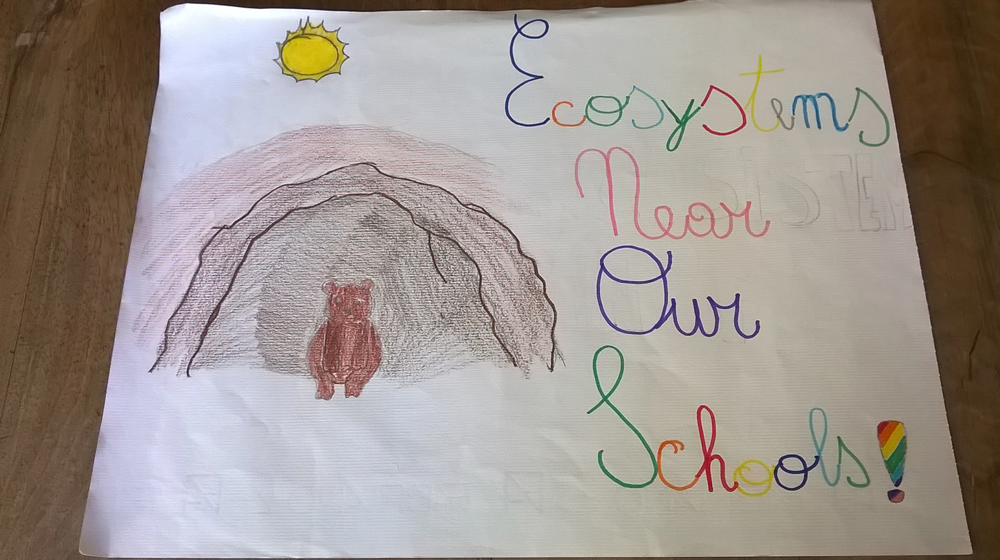 Schools shared information about their neighborhood ecosystems. Ecosystem consists of biotope and biocenosis. These two elements determine the environmental dependencies put in place – food chain, distribution, reproduction. Habitat, along with environmental factors, determines the conditions of development of the population, which in turn shape the habitat. The end result of the project was the establishment of documentation cards for the analyzed ecosystems.
Schools shared information about their neighborhood ecosystems. Ecosystem consists of biotope and biocenosis. These two elements determine the environmental dependencies put in place – food chain, distribution, reproduction. Habitat, along with environmental factors, determines the conditions of development of the population, which in turn shape the habitat. The end result of the project was the establishment of documentation cards for the analyzed ecosystems.
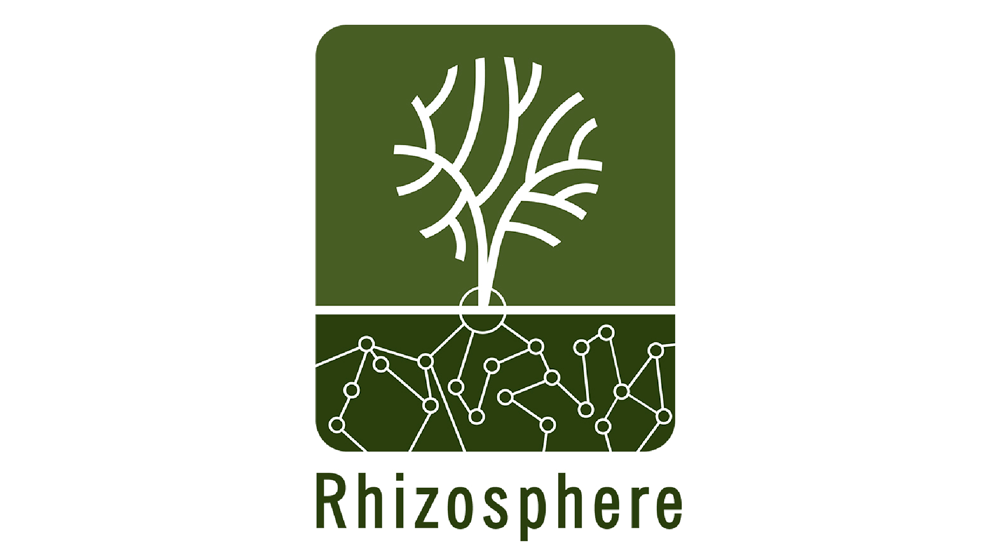 READ MORE ABOUT
READ MORE ABOUT
THE RHIZOSPHERE PROJECT
